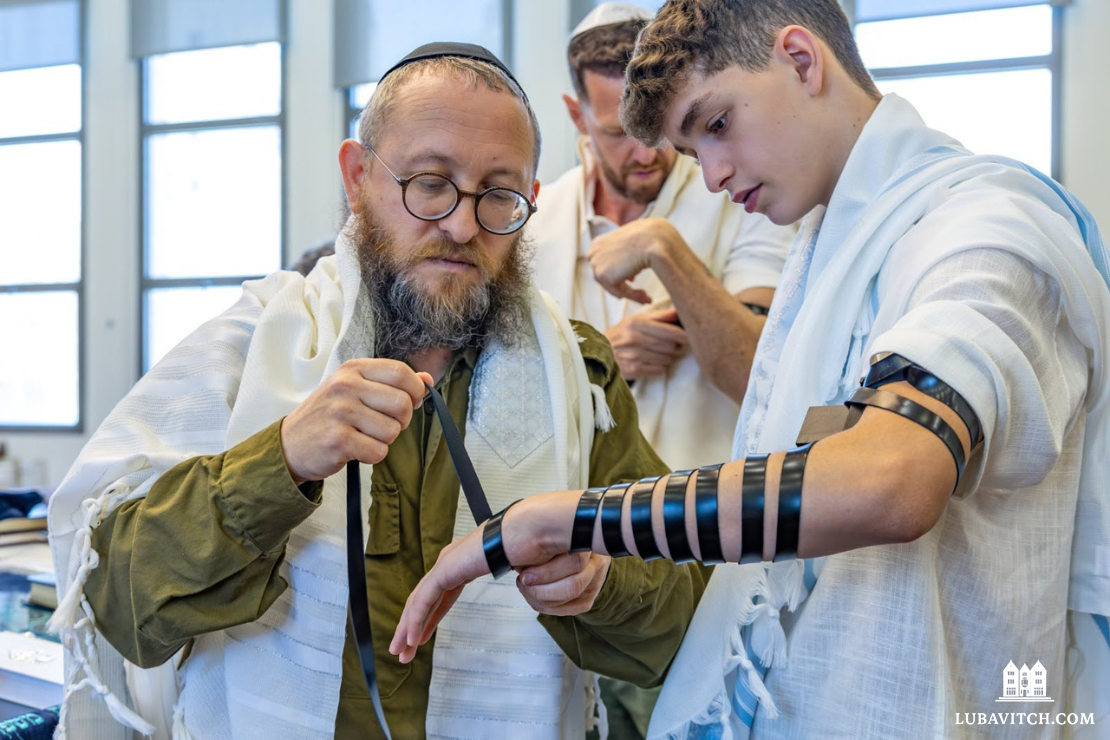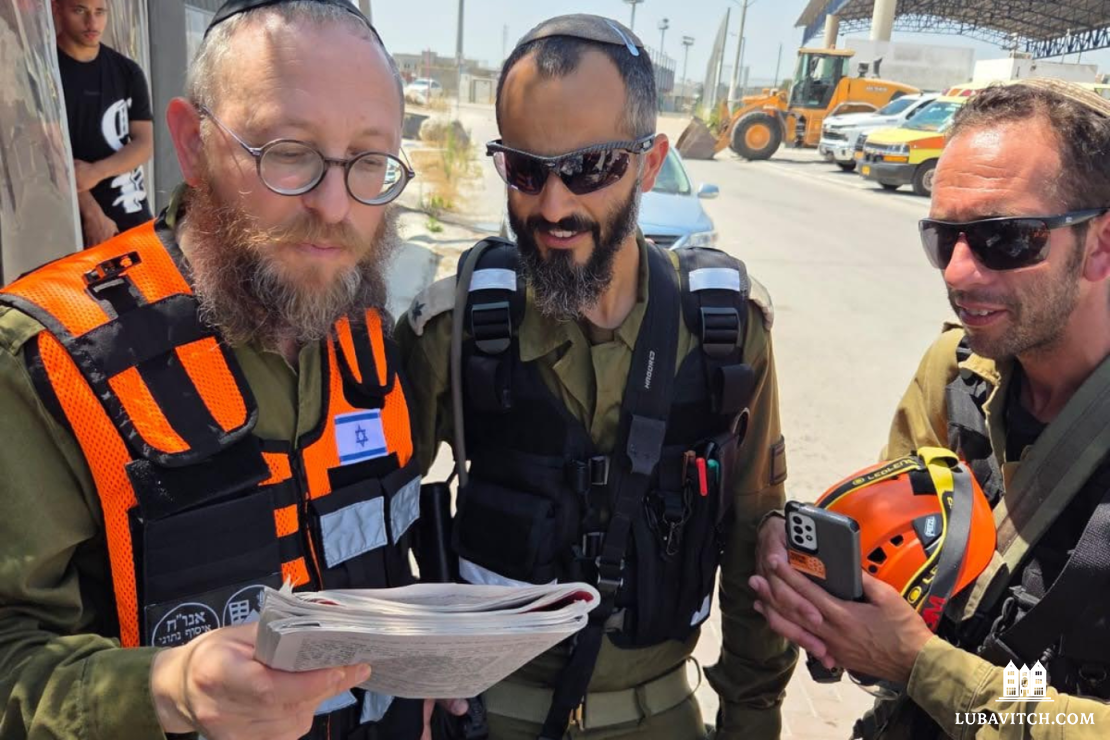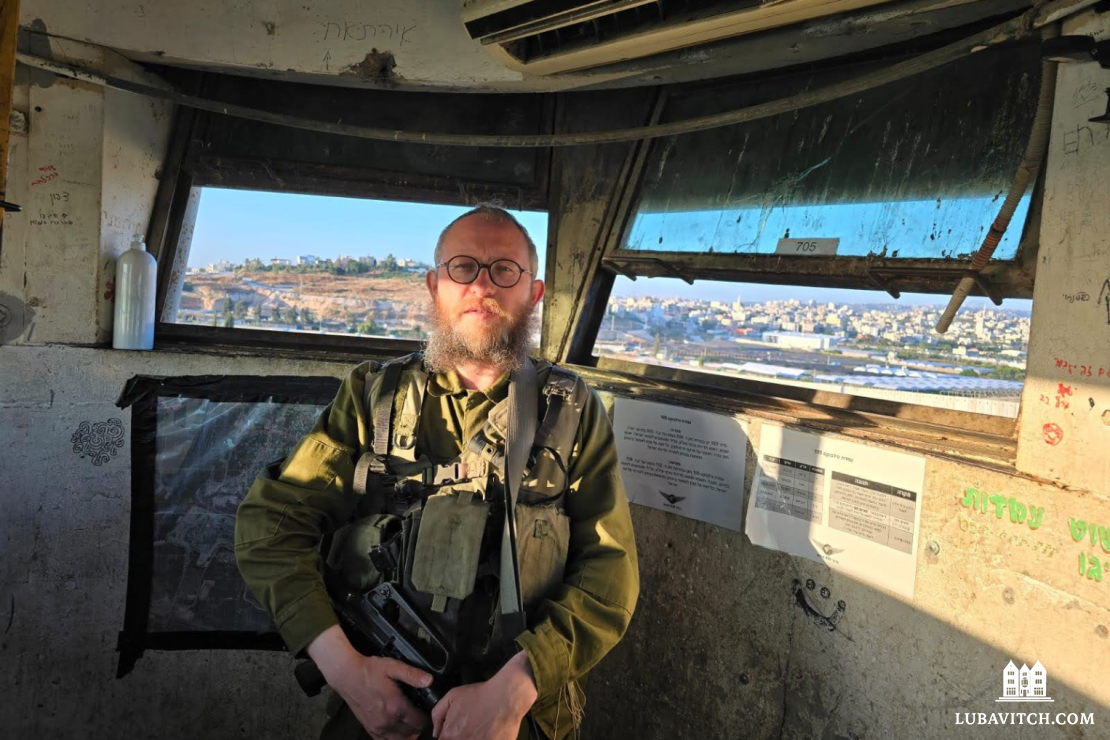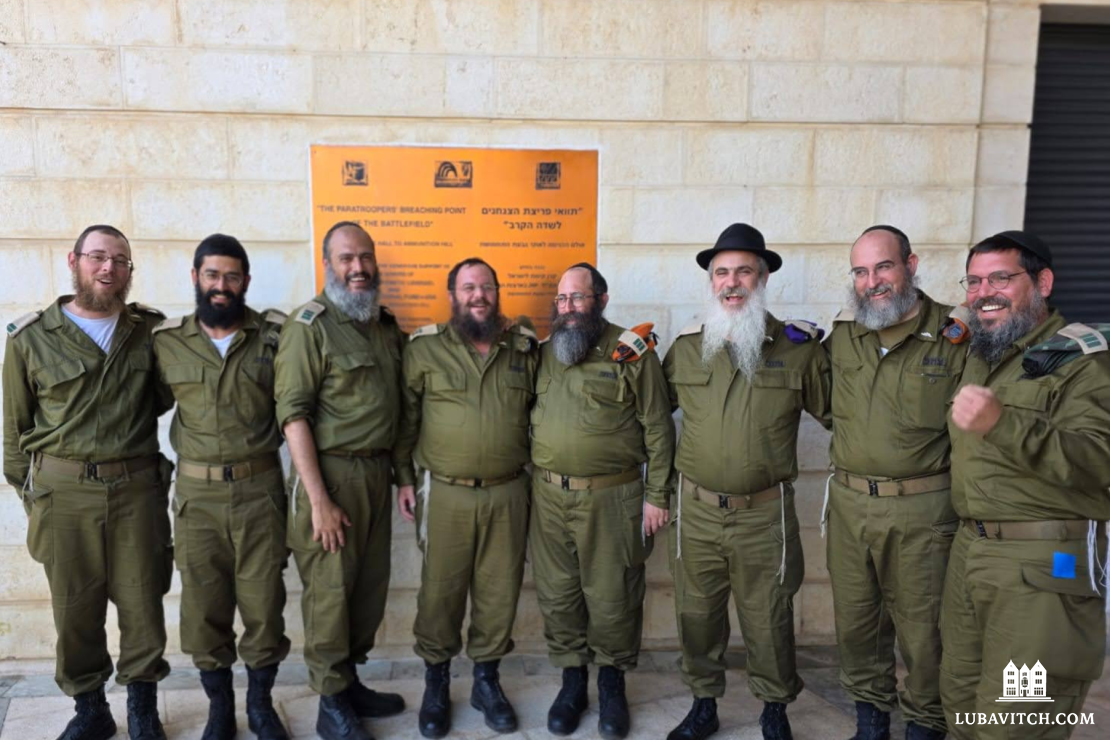Rabbi Netanel Ben Maas is a Chabad-Lubavitch representative in the town of Mikhmoret, Israel, a small seaside moshav located north of Netanya.
Like most Israeli citizens, Netanel served his mandatory tour of duty as an enlisted soldier in the IDF, and remained in the IDF Reserves, available for callup in case of any emergency.
On October 7, 2023, he was called up.
He and two of his brothers were called to the Shura base, where the bodies of the deceased were prepared for final honors and Jewish burial. For Netanel, a military cantor, “The first days after the massacre were utter chaos.” The rabbi officiated at funeral after funeral, making call after call to bereaved families in a country awash with grief and horror.

The horror, the tragedies and the trauma were relentless. He recalls the day a Namer armored personnel carrier was destroyed leaving no survivors and twenty families plunged into deep mourning.
After accompanying dozens of families through their grief — at the shivah, the thirty-day memorial, the eleven month conclusion of Kaddish recital, and the yahrtzeit memorial — Netanel began to notice a pattern. “At every ceremony, when mentioning the name of the soldier, we must also mention their rank. And I noticed that most of the soldiers we were burying were officers. I didn’t understand why, until I asked a friend of mine from the moshav – a lieutenant colonel. He looked at me and simply said: ‘Don’t you know? In the IDF the officers are always at the front. They are the tip of the spear, the first to charge.’”

The idea resonated with the Chabad emissary. Netanel chose to enroll in an IDF officer’s course. It was a learning curve for the rabbi, but he adjusted quickly, training in counter-terrorism, night navigation, shooting ranges, and the additional responsibilities that come with being an officer.
Upon completing their training, he and five other Chabad-Lubavitch emissaries were sworn in as officers in the IDF.
Of the roughly 90 Chabad rabbis who serve in the IDF, twenty are at the rank of seren — captain — or higher. They serve in various reserve and active-duty branches, including the military rabbinate or other divisions. They do what miluim’niks — reservists — across the country do: balancing their year-round obligations — in this case, to their families and their communities — with their drive to serve their fellow Jews serving in the military.
Rabbi Gershon Shnur is a Chabad-Lubavitch emissary in Ganei Tikva, a city in central Israel. He works for the Home Front Command, accompanying search-and-recovery elements to ensure the deceased are brought to burial in accordance with Jewish law.
“My work as a shliach and the rabbi of a large community, and my years of experience allow me to share my knowledge with fellow soldiers,” Rabbi Shnur said. For young soldiers — many in their late teens — having mature rabbis working alongside them can offer meaningful support.
And for the rabbis–whether wearing their rabbinic garb or army fatigues, the idea is the same. “It’s about responsibility, courage, and the willingness to stand at the front for others–to be the tip of the spear.”



Andee Goldman
As an Israeli American, THANK YOU for keeping our country safe!!